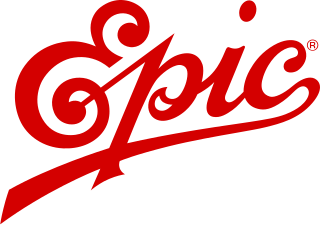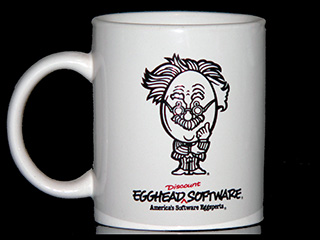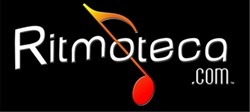
The dot-com bubble was a stock market bubble that ballooned during the late-1990s and peaked on Friday, March 10, 2000. This period of market growth coincided with the widespread adoption of the World Wide Web and the Internet, resulting in a dispensation of available venture capital and the rapid growth of valuations in new dot-com startups. Between 1995 and its peak in March 2000, investments in the NASDAQ composite stock market index rose by 800%, only to fall 78% from its peak by October 2002, giving up all its gains during the bubble.

Amazon.com, Inc., doing business as Amazon, is an American multinational technology company engaged in e-commerce, cloud computing, online advertising, digital streaming, and artificial intelligence. It is considered one of the Big Five American technology companies, the other four being Alphabet, Apple, Meta, and Microsoft.

The Bertelsmann SE & Co. KGaA, commonly known as Bertelsmann, is a German private multinational conglomerate corporation based in Gütersloh, North Rhine-Westphalia, Germany. It is one of the world's largest media conglomerates and is also active in the service sector and education.

Kozmo.com was a venture capital–funded online company that promised free one-hour delivery of "videos, games, DVDs, music, mags, books, food, basics and more" and Starbucks coffee in several major cities in the United States. It was founded in March 1998 by young investment bankers Joseph Park and Yong Kang in New York City, and was out of business by April 2001. The company is often cited as an example of the dot-com bubble. In January 2013, the brand was bought by Yummy.com and announced that they would relaunch soon. In March 2018, Kozmo was relaunched as a warehouse club. The Kozmo.com website is offline as of July 2023.
Arista Records is an American record label owned by Sony Music Entertainment, a subsidiary of Sony Corporation of America, the American division of the Japanese conglomerate Sony. The label was previously a division of Bertelsmann Music Group, the North American division of German conglomerate Bertelsmann. Founded in November 1974 by Clive Davis and deactivated in 2011, Arista was re-established in 2018. Along with RCA Records, Columbia Records, and Epic Records, it is one of Sony Music's four flagship record labels.

Epic Records is an American record label owned by Sony Music Entertainment, a subsidiary of Sony Corporation of America, the American division of Japanese conglomerate Sony. The label was founded predominantly as a jazz and classical music label in 1953, but later expanded its scope to include a more diverse range of genres, including pop, R&B, rock, and hip hop.

Bertelsmann Music Group (BMG) was a division of a German media company Bertelsmann before its completion of sale of the majority of its assets to Sony Corporation of America on 1 October 2008.
Affiliate marketing is a marketing arrangement in which affiliates receive a commission for each visit, signup or sale they generate for a merchant. This arrangement allows businesses to outsource part of the sales process. It is a form of performance-based marketing where the commission acts as an incentive for the affiliate; this commission is usually a percentage of the price of the product being sold, but can also be a flat rate per referral.
Sony BMG Music Entertainment was an American record company owned as a 50–50 joint venture between Sony Corporation of America and Bertelsmann. The venture's successor, the revived Sony Music, is wholly owned by Sony, following their buyout of the remaining 50% held by Bertelsmann. BMG was instead rebuilt as BMG Rights Management on the basis of 200 remaining artists.

Sony Music Entertainment (SME), commonly known as Sony Music, is an American multinational music company owned by Sony Entertainment and managed by the American umbrella division of multinational conglomerate Sony Group Corporation. It is the recording division of Sony Music Group, with the other half being the publishing division, Sony Music Publishing.

Columbia House was an umbrella brand for Columbia Records' mail-order music clubs, the primary iteration of which was the Columbia Record Club, established in 1955. The Columbia House brand was introduced in the early 1970s by Columbia Records, and had a significant market presence in the 1970s, 1980s and early 1990s.

Egghead Software was an American computer software retailer. Founded in 1984, it filed for bankruptcy in 2001 and its domain name was acquired by Amazon.com.
Quack.com was an early voice portal company. The domain name later was used for Quack, an iPad search application from AOL.
Jason Olim is the former CEO and co-founder of CDNow, Inc., one of the first e-commerce companies. He has earned Entrepreneur of the Year awards from the Small Business Association, Arthur Andersen, the Greater Philadelphia Chamber of Commerce (1997) and the Greater Philadelphia Venture Group (1999).

BMG Rights Management GmbH is an international music company based in Berlin, Germany. It combines the activities of a music publisher and a record label.

Ritmoteca.com was an online music store. Founded in Miami, Florida, in 1998 during the Dot-com bubble by Ivan Parron, the company was a Latin music download website and an early predecessor to Apple Inc.'s iTunes business model of selling digital music downloads over the Internet.
Dick Wingate is an American music industry and digital entertainment executive, currently serving as principal of DEV Advisors. Wingate is also a board member and partner in Big House Music Publishing, as well as an affiliate of NARAS (Grammys).

Scott N. Flanders is an American corporate executive in the media, entertainment and technology industries. He is currently chief executive officer and long-term member of the board of directors at eHealth, Inc., a role he assumed on May 31, 2016. He formerly was CEO of Playboy Enterprises, and held CEO positions at Macmillan Publishers, Telstreet, Freedom Communications, and Columbia House.
Music Boulevard, or musicblvd.com, was a retail music information and sales website founded in 1995 by Telebase Systems. In 1997 the Music Boulevard website, operated by N2K, became among the first websites to offer piracy-protected music singles for direct download. The website used Liquid Audio's single-delivery system. Originally created as a subsidiary of Telebase Systems by its CEO Jim Coane, N2K's MusicBlvd went public in October 1997. The website offered more than 300,000 music titles and generated more than 80 million views in its first quarter.












